
Code: 02134364
Fetishism to Credit Money with an Intrinsic Power to Change ('Invert') Society and Culture
by Johannes Lenhard
Essay from the year 2013 in the subject Pedagogy - Science, Theory, Anthropology, grade: 69, University of Cambridge, language: English, abstract: Modern money is not easily captured. Some accounts even claim that its defining fea ... more
- Language:
 English
English - Binding: Paperback
- Number of pages: 12
Publisher: Grin Publishing, 2013
- More about this

15.66 €
RRP: 17.34 €
You save 1.68 €

In stock at our supplier
Shipping in 8 - 10 days
You might also like
-
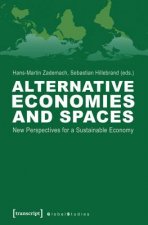
Alternative Economies and Spaces
33.45 € -5 % -
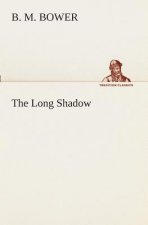
Long Shadow
29.31 € -

Logistics
115.95 € -

Poetics
14.85 € -2 % -

Pfrundner
18.29 €
Give this book as a present today
- Order book and choose Gift Order.
- We will send you book gift voucher at once. You can give it out to anyone.
- Book will be send to donee, nothing more to care about.
More about Fetishism to Credit Money with an Intrinsic Power to Change ('Invert') Society and Culture
You get 39 loyalty points
 Book synopsis
Book synopsis
Essay from the year 2013 in the subject Pedagogy - Science, Theory, Anthropology, grade: 69, University of Cambridge, language: English, abstract: Modern money is not easily captured. Some accounts even claim that its defining feature is its quality as a universal leveller and yardstick (see Maurer, 2006:16). This quality, however, is exactly what we want to debate. Without being confined to a particular conceptualisation of modern money as a means of payment, a store of value and a unit of account, I want to approach money as such in its various forms in traditional (nonmodern) contexts and our own credit-money -bank form. The question is what effect a money has: does it flatten, commensurate and homogenise? Is it true that when monetary exchange is anonymous and anonymizing, the social identities of transacting parties are irrelevant to the value of the objects mediated by money and so the things take on the powers of the fetish (Maurer, 2006:23)? As the following discussion shows, you can indeed find examples for this flattening function of money. Not only does Marx explicitly focus on this negative, fetishised i.e. concealed quality of money as confuser , but Bohannan (1959) finds this effect of modern money on the Tiv economy in Nigeria. Kwon s (2007) analysis of Vietnamese ghost money generally agrees with Bohannan but introduces a more balanced view on money s cultural meanings and potential problems of human agency and performativity as opposed to seeing it as an inherent quality. Simmel s other side of money s potential effect increased freedom and a new form of relation are brought into the debate with Cole s (2005) account of transactional sex in Madagascar partly building on Hutchinson s (1992) fieldwork among the Nuer. Money should not be seen through the eyes of Western folk tales (Maurer, 2006:19) but in its culturally specific context. Money is not one-sided but its effects depend on where it is used by whom in what kind of practice. Marx account is merely one part of this story the one that now has become exactly that, a Western folk tale.
 Book details
Book details
Book category Books in English Society & social sciences Education
15.66 €
- Full title: Fetishism to Credit Money with an Intrinsic Power to Change ('Invert') Society and Culture
- Author: Johannes Lenhard
- Language:
 English
English - Binding: Paperback
- Number of pages: 12
- EAN: 9783656466413
- ISBN: 3656466416
- ID: 02134364
- Publisher: Grin Publishing
- Weight: 41 g
- Dimensions: 254 × 178 × 1 mm
- Date of publishing: 27. September 2013
Trending among others
-

AQA GCSE German Higher Practice Papers
15.46 € -
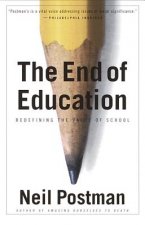
The End of Education
13.44 € -26 % -

Deep Healing and Transformation
48.32 € -

Cambridge IGCSE (R) & O Level Complete Chemistry: Student Book Fourth Edition
42.45 € -

Business Partner B1+ Workbook
16.87 € -3 % -
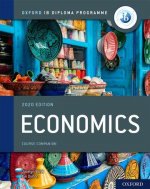
Oxford IB Diploma Programme: IB Economics Course Book
62.27 € -

Cambridge IGCSE (R) & O Level Complete Physics: Student Book Fourth Edition
38.81 € -

OET Preparation
9.70 € -
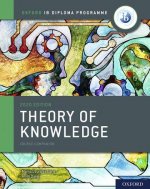
Oxford IB Diploma Programme: IB Theory of Knowledge Course Book
63.08 € -

Speed and Accuracy: Multiplication
8.58 € -

Pearson Edexcel International GCSE (9-1) English Language B Student Book
50.54 € -

KS3 Maths 10-Minute Weekly Workouts - Year 7
8.08 € -8 % -

KS3 Maths 10-Minute Weekly Workouts - Year 8
8.08 € -8 % -

Read Write Inc. Phonics: Red Ditty Book Bag Books (Mixed Pack of 10)
74.70 € -
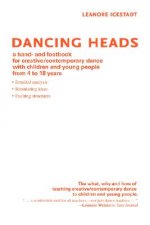
Dancing Heads
12.22 € -24 % -

Freiarbeitsmaterial für die Grundschule - Deutsch - Klasse 1/2
22.94 € -4 % -

Business Partner B1 Workbook
17.48 € -8 % -

Business Partner B2 Workbook
16.87 € -3 % -

Blue Book of Grammar and Punctuation: An Easy- to-Use Guide with Clear Rules, Real-World Examples , and Reproducible Quizzes, Twelfth Edition
15.15 € -28 % -

Grade 9-1 GCSE Maths AQA Revision Question Cards - Higher
10.10 € -4 % -

Positive Discipline Tools for Teachers
14.45 € -24 % -

Speed and Accuracy: Division
8.58 € -

Pearson Edexcel AS and A level Mathematics Statistics & Mechanics Year 1/AS Textbook + e-book
17.88 € -

(ISC) SSCP SG & SSCP Practice Test Kit, 3e
84.20 € -5 % -

Motivation and Reinforcement
46.39 € -

Imagine If...
11.31 € -28 % -

Vertical Academy
36.79 € -

OET Reading Subtest Preparation
12.63 € -7 % -

Oxford International Primary Maths Second Edition: Practice Book 1
16.06 € -

Vol 2 Blackletter Lettering Adventures
25.37 € -2 % -
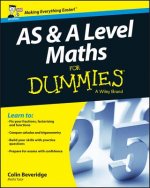
AS & A Level Maths For Dummies
17.38 € -27 % -

Forensic Linguistics Articles
14.55 € -1 % -

CompTIA Security+ Review Guide - Exam SY0-601
24.86 € -24 % -

Practical Guide on Veterinary First Aid using Homeopathy
14.85 € -2 % -

Abolition of Man
18.69 € -1 % -

Human Landscapes from My Country
28.80 € -21 % -

Corrected Squares of The Book of Abramelin
506.19 € -

Hanbo Jutsu: Use of Hanbo, Cane and Walking Stick for Self Defense
11.31 € -
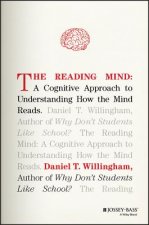
Reading Mind - A Cognitive Approach to Understanding How the Mind Reads
21.42 € -28 % -

Exam Prep for Microeconomics by Pindyck & Rubinfeld, 6th Ed.
40.33 € -

North Korea's Military Threat
25.57 € -

English Language & Literature WORKBOOK: York Notes for GCSE (9-1)
8.99 € -9 % -

Release Your Inner Drive
15.15 € -18 % -

Effect of Registration Errors on Tracking in a Networked Radar System
57.11 € -1 % -

Princeton Review SAT Premium Prep, 2021
42.86 € -4 % -

CEH v11 Certified Ethical Hacker Study Guide + Practice Tests Set
74.90 € -5 % -

10 Practice Tests for the SAT, 2021 Edition
31.73 € -

OCP Oracle Certified Professional Java SE 11 Programmer II Study Guide - Exam 1Z0-816 and Exam 1Z0-817
49.93 € -5 % -

Scrum - A Pocket Guide - 2nd edition
34.36 €
Collection points Bratislava a 2642 dalších
Copyright ©2008-24 najlacnejsie-knihy.sk All rights reservedPrivacyCookies


 15549 collection points
15549 collection points Delivery 2.99 €
Delivery 2.99 € 02/210 210 99 (8-15.30h)
02/210 210 99 (8-15.30h)